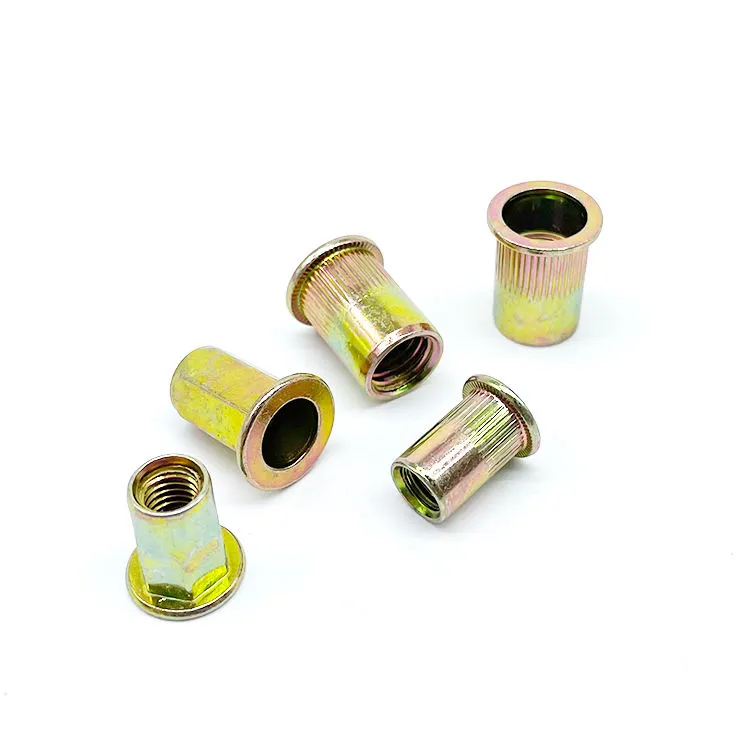

self tapping metal roofing screws
Dec . 07, 2024 14:29 Back to list
self tapping metal roofing screws
The Importance of Self-Tapping Metal Roofing Screws in Construction
When it comes to roofing, particularly metal roofing, the choice of fasteners plays a crucial role in ensuring the durability and effectiveness of the system. One of the most essential tools in the assembly of metal roofs is the self-tapping metal roofing screw. These unique screws have revolutionized the roofing industry by providing reliability, efficiency, and ease of installation.
What Are Self-Tapping Metal Roofing Screws?
Self-tapping screws are designed to create their own hole as they are driven into the material. This feature eliminates the need for pre-drilling pilot holes, which can significantly speed up the installation process. Self-tapping metal roofing screws are specifically engineered to securely fasten metal roofing panels, ensuring that they adhere tightly to the roof structure.
These screws typically feature a sharp, pointed tip that allows for easy penetration into metal surfaces. Additionally, they often come with a threading design that enhances grip and minimizes the chance of the screw loosening over time, which is critical for maintaining the integrity of the roofing system.
Advantages of Self-Tapping Metal Roofing Screws
1. Ease of Installation The most significant advantage of self-tapping screws is their ease of installation. Because they do not require pre-drilling, contractors can significantly reduce labor time and costs. This is especially beneficial on large projects where every minute counts.
2. Versatility Self-tapping screws are versatile and can be used on various types of metal roofing, including galvanized, stainless steel, and aluminum. Their compatibility with different metals makes them a go-to choice for a wide range of roofing applications.
3. Strong Hold The design of self-tapping screws ensures a tight fit that holds well under various weather conditions. This strength is vital for maintaining a waterproof seal, which is essential in protecting the building from leaks and water damage.
4. Corrosion Resistance Most self-tapping roofing screws are coated with protective finishes, such as zinc or epoxy, to prevent corrosion. This is crucial for metal roofs exposed to harsh weather conditions, as rust and decay can significantly undermine the longevity of the roofing system.
self tapping metal roofing screws

5. Aesthetic Appeal Many self-tapping screws come in a variety of colors to match or complement the roofing materials. This not only provides a secure connection but also enhances the overall appearance of the roof, an important consideration for residential and commercial buildings alike.
Best Practices for Using Self-Tapping Metal Roofing Screws
To ensure optimal performance and longevity when using self-tapping metal roofing screws, it’s essential to follow some best practices
1. Choose the Right Screw Selecting the appropriate length and gauge of screw is vital. The screw should penetrate into the underlying structure by at least one inch for a secure hold while also accommodating the thickness of the metal panel.
2. Proper Installation Techniques Use a power drill with a torque setting to prevent over-tightening, which can strip the thread or deform the metal. It’s typically recommended to drive the screw straight and avoid angling it, ensuring a proper seal.
3. Regular Inspections After installation, periodic inspections should be conducted to check for any signs of wear, corrosion, or loosening of screws. Proactive maintenance can help identify potential issues before they lead to significant damage.
4. Consider Weather Conditions Install self-tapping screws during suitable weather conditions. Extreme cold or wet conditions can affect the integrity of the installation and the materials used.
Conclusion
In summary, self-tapping metal roofing screws are an indispensable element of modern roofing systems. Their ease of installation, combined with their strength and corrosion resistance, makes them ideal for both residential and commercial applications. By following best practices, builders and contractors can ensure that their roofing projects stand the test of time, providing safety and protection for the buildings below. As the construction industry continues to evolve, self-tapping screws will undoubtedly remain at the forefront of roofing technology and application.
Latest news
-
High-Strength Hot Dip Galvanized Bolts - Hebei Longze | Corrosion Resistance, Customization
NewsJul.30,2025
-
Hot Dip Galvanized Bolts-Hebei Longze|Corrosion Resistance&High Strength
NewsJul.30,2025
-
High-Strength Hot-Dip Galvanized Bolts-Hebei Longze|Corrosion Resistance&High Strength
NewsJul.30,2025
-
Hot Dip Galvanized Bolts-Hebei Longze|Corrosion Resistance&High Strength
NewsJul.30,2025
-
Hot Dip Galvanized Bolts - Hebei Longze | Corrosion Resistance, High Strength
NewsJul.30,2025
-
High-Strength Hot Dip Galvanized Bolts-Hebei Longze|Corrosion Resistance, Grade 8.8
NewsJul.30,2025

